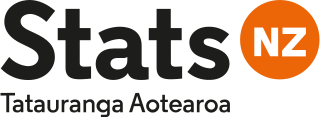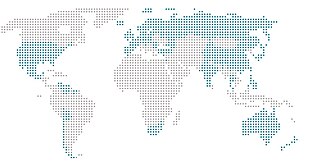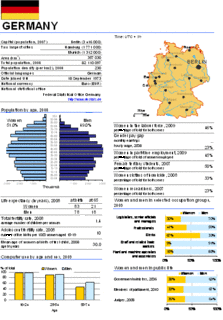The Office for National Statistics is the executive office of the UK Statistics Authority, a non-ministerial department which reports directly to the UK Parliament.

Statistics New Zealand, branded as Stats NZ, is the public service department of New Zealand charged with the collection of statistics related to the economy, population and society of New Zealand. To this end, Stats NZ produces censuses and surveys.

The American Community Survey (ACS) is a demographics survey program conducted by the U.S. Census Bureau. It regularly gathers information previously contained only in the long form of the decennial census, such as ancestry, citizenship, educational attainment, income, language proficiency, migration, disability, employment, and housing characteristics. These data are used by many public-sector, private-sector, and not-for-profit stakeholders to allocate funding, track shifting demographics, plan for emergencies, and learn about local communities. Sent to approximately 295,000 addresses monthly, it is the largest household survey that the Census Bureau administers.

The Survey of Income and Program Participation (SIPP) is a statistical survey conducted by the U.S. Census Bureau. The SIPP is designed to provide accurate and comprehensive information about the incomes of American individuals and households and their participation in income transfer programs.
The Family Resources Survey (FRS) is one of the United Kingdom’s largest household surveys. It is carried out by the Office for National Statistics (ONS) with the National Centre for Social Research (NatCen), and Northern Ireland Statistics and Research Agency (NISRA) on an annual basis, by collecting information on the incomes and characteristics of private households in the United Kingdom. It is sponsored by the Department for Work and Pensions (DWP).
Parliamentary informatics is the application of information technology to the documentation of legislative activity. The principal areas of concern are the provision, in a form conveniently readable to humans or machines, of information and statistics about:

The International Social Survey Programme (ISSP) is a collaboration between different nations conducting surveys covering topics which are useful for social science research. The ISSP researchers develop questions which are meaningful and relevant to all countries which can be expressed in an equal manner in different languages. The results of the surveys provide a cross-national and cross-cultural perspective to individual national studies. By 2021, 58 countries have already taken part in the ISSP.
The Neighbourhood Statistics Service (NeSS) was established in 2001 by the UK's Office for National Statistics (ONS) and the Neighbourhood Renewal Unit (NRU) - then part of the Office of the Deputy Prime Minister (ODPM), now Communities and Local Government (CLG) - to provide good quality small area data to support the Government's Neighbourhood Renewal agenda. This cross-Government initiative also involved the co-operation and partnership of data suppliers across departments, agencies and other organisations. The ONS closed the Neighbourhood Statistics website for England and Wales on the 12 May 2017. To offset this, the ONS is aiming to meet the needs of users via the ONS website, although direct postcode searches are no longer available to users.

Official statistics are statistics published by government agencies or other public bodies such as international organizations as a public good. They provide quantitative or qualitative information on all major areas of citizens' lives, such as economic and social development, living conditions, health, education, and the environment.
Labour Force Surveys are statistical surveys conducted in a number of countries designed to capture data about the labour market. All European Union member states are required to conduct a Labour Force Survey annually. Labour Force Surveys are also carried out in some non-EU countries. They are used to calculate the International Labour Organization (ILO)-defined unemployment rate. The ILO agrees the definitions and concepts employed in Labour Force Surveys.

A census of the population of the United Kingdom is taken every ten years. The 2011 census was held in all countries of the UK on 27 March 2011. It was the first UK census which could be completed online via the Internet. The Office for National Statistics (ONS) is responsible for the census in England and Wales, the General Register Office for Scotland (GROS) is responsible for the census in Scotland, and the Northern Ireland Statistics and Research Agency (NISRA) is responsible for the census in Northern Ireland.
The General Household Survey (GHS) was a survey conducted of private households in Great Britain by the Office for National Statistics (ONS). The aim of this survey was to provide government departments and organisations with information on a range of topics concerning private households for monitoring and policy purposes.
The Expenditure and Food Survey is now the Living Costs and Food Survey.
The Annual Population Survey (APS) is a combined statistical survey of households in Great Britain which is conducted quarterly by the Office for National Statistics (ONS). It combines results from the Labour Force Survey (LFS) and the English, Welsh and Scottish Labour Force Survey boosts which are funded by the Department for Education and Skills (DfES), the Department for Work and Pensions (DWP), the Welsh Government and the Scottish Government.
The Health Survey for England (HSE) is a statistical survey which is conducted annually in order to collect information concerning health and health-related behaviour of people living in private households in England.
The Living Costs and Food Survey (LCF) is a survey carried out in the United Kingdom by the Office for National Statistics (ONS). It is carried out on a calendar year basis and collects information on expenditure of goods and services for private households. The survey is primarily designed to collect expenditure information, however it also gathers information about the income of household members.
The National Health Interview Survey (NHIS) is an annual, cross-sectional survey intended to provide nationally representative estimates on a wide range of health status and utilization measures among the nonmilitary, noninstitutionalized population of the United States. Each annual data set can be used to examine the disease burden and access to care that individuals and families are currently experiencing in the United States.
The first Federal population census in Switzerland took place in March 1850 under the direction of Federal Councillor Stefano Franscini. As well as counting the number of inhabitants, respondents were also asked about their sex, age, marital status, occupation and religion. Between 1860 and 2000, a census took place every ten years in December. The only exceptions to this 10-year rhythm were the population census of 1888 and the population census of 1941. The census of 2000 was the last to use traditional methods. Since 2010, the population census has been carried out and analysed annually in a new format by the Federal Statistical Office (FSO). In order to ease the burden on the population, the information is primarily drawn from population registers and supplemented by sample surveys. Only a small proportion of the population are surveyed in writing or by telephone. The first reference day for the new census was 31 December 2010.
Beyond 2011, also known as The Beyond 2011 Programme, is a project initiated by the UK Statistics Authority to look at the alternatives to running a UK census in 2021. In 2008, the Treasury Select Committee had expressed concerns about the increasing cost of running the census and inaccuracies in data gathered only every ten years. In 2010 the newly elected coalition government reiterated such concerns responding to a report by the UK Statistics Authority.

On Sunday 21 March 2021, the decennial 2021 censuses of England and Wales and of Northern Ireland took place. The census of Scotland is planned to take place in 2022. The censuses were administered by the Office of National Statistics (ONS) in England and Wales, by the Northern Ireland Statistics and Research Agency (NISRA) in Northern Ireland, and by the National Records of Scotland in Scotland. These were the first British censuses for which most of the data was gathered online, and two of them went ahead despite the COVID-19 pandemic, in part because the information obtained will assist government and public understanding of the pandemic's impact. Enumeration in Scotland was postponed, and took place in 2022, the plans for it having been delayed because of the pandemic.






